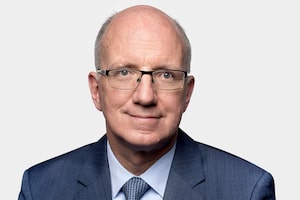One of Canada’s largest timber companies is setting aside 40,000 hectares of British Columbia coastal forests – woodlands three times larger than the city of Vancouver – after concluding it can make more money from letting trees grow and selling carbon credits than from logging.
On Wednesday, Mosaic Forest Management announced it will defer the harvesting of “old forests” on Vancouver Island and Haida Gwaii for at least 25 years, opting instead to sell nature-based carbon credits to companies that want to offset a portion of their greenhouse gas emissions. The Vancouver-based company is halting logging on 7 per cent of its timberlands, calling it the largest project of its kind in Canada.
Mosaic estimates the program, which it calls the BigCoast Forest Climate Initiative, will generate between $100-million and $300-million, based on current prices for carbon credits. In an interview, Mosaic chief forester Domenico Iannidinardo said: “We expect to make at least as much from the BigCoast initiative as we would earn from harvesting these forests.”
Mosaic oversees forest holdings for two B.C. companies – TimberWest Forest Corp. and Island Timberlands L.P. – which are owned by two pension plans: the British Columbia Investment Management Corp. and the Public Sector Pension Investment Board.
“The BigCoast Forest Climate Initiative brings high-quality, large-scale, nature-based carbon credits to a growing international market,” Mosaic chief executive officer Jeff Zweig said in a news release. “The initiative generates economic value, contributes to the global effort to reduce carbon emissions, and benefits our local partners.”
Selling carbon credits has its critics: Some environmentalists say purchasing offsets can allow large industrial emitters to avoid the cost of cutting emissions. To guard against this approach, Mosaic hired global carbon credit adviser ClimeCo Corp. to market the BigCoast initiative. In an interview, ClimeCo CEO William Flederbach said Mosaic’s offsets will initially be sold to companies that already have robust emission-reduction programs – clients that need BigCoast for just a small percentage of their efforts to reach net zero.
“This is not greenwashing,” said Mr. Flederbach, who co-founded ClimeCo in 2009. “Nature-based carbon credits are a part of sophisticated businesses’ strategies to meet their GHG targets.“ He said BigCoast offsets will be certified under the Verified Carbon Standard, the industry’s most rigorous, and will command a premium price in the rapidly expanding offset trading market.
Mosaic plans to sell carbon credits to airlines, technology companies, heavy industry, banks and energy companies “that have built carbon pricing into their business strategies,” Mr. Flederbach said.
It is setting aside timberlands in the wake of protests against planned logging in the Fairy Creek watershed on Vancouver Island, which is owned by rival forestry company Teal-Jones Group. Mr. Iannidinardo said Mosiac’s decision to halt logging on its properties, some of which are close to Fairy Creek, “will enhance watersheds and preserve the mystique of old growth forests.”
The company will share a portion of BigCoast’s revenue with two charities – the Pacific Salmon Foundation and the Indigenous Protected and Conserved Areas Innovation Program. In a news release, T’Sou-ke First Nation Chief Gordon Planes said: “This initiative provides decades of certainty for First Nations to research these lands.”
Going forward, Mr. Iannidinardo said Mosaic will offer smaller B.C. forest managers and First Nations the opportunity to add their timberlands to the BigCoast initiative. In a news release, Katrine Conroy, B.C.’s Minister of Forests, Lands, Natural Resource Operations and Rural Development, said BigCoast “promises to deliver real benefits for primary forests throughout coastal British Columbia.”
The project also won praise from federal politicians. In a release, Steven Guilbeault, the federal Minister of Environment and Climate Change, said: “Protecting and conserving our old forests like this will go a long way towards tackling the twin crises of biodiversity loss and climate change.”
Editor’s note: This article has been changed from the original version, removing the Alberta Investment Management Corp. from the list of owners of forest holdings managed by Mosaic.
Your time is valuable. Have the Top Business Headlines newsletter conveniently delivered to your inbox in the morning or evening. Sign up today.
 Andrew Willis
Andrew Willis